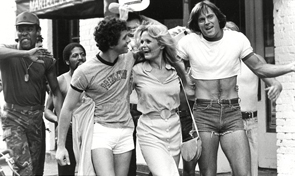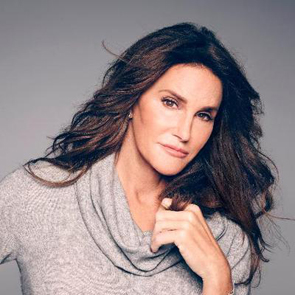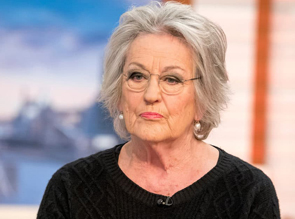Ben Elton’s new book, Identity Crisis touches upon a number of hot topics right now. In Elton’s own words, it’s ‘zeitgeisty’. Not only does it address identity politics, as its title suggests, but it considers this in our broader historical context: of the fracturing of western democracies in the last few years; the influence of social media; Trump, as well as the Brexit vote of 2016.
The plot, itself, follows a crime fiction model. Detective Chief Inspector Michael Matlock, along with Detective Sargent Barry Taylor and Detective Constable Sally Clegg have been tasked with solving the murder of Sammy Hill, a young woman murdered in a park at night. That seems simple enough except that from the investigation emerges a series of flashpoints reflecting the changing sexual and social attitudes of our times, indicative of our more fractured, angrier world. When Matlock says at a press conference that Sammy’s death was A case of being in the wrong place at the wrong time
he is using a well-worn expression to say he believes the attack was random. Yet he endures a firestorm of outrage across social media, claiming that he was suggesting that Sammy contributed to her own murder; perhaps that young women shouldn’t be some places at certain times. Matlock endures the horror of trending
on social media, and he is called upon either to apologise or resign. He can’t continue the investigation until the whole thing has completed its spin cycle
. Matlock, a fifty-something, white heterosexual man, also falls foul of modern social conventions at the morgue when he and his team go to view Sammy’s body. Katherine Galloway, a young woman Matlock has never before met, is the Home Office pathologist at the morgue. She insists on being called Kate and calling Matlock Mick or Mike. It’s all too familiar he feels – the habits of a younger generation – but Matlock perseveres. Then, there is this wonderful exchange:
‘DS Talylor tells me that you found semen in the victim’s anus?’
‘Actually, Mike, gotta say, I don’t really use the word “victim”,’ Kate said, ‘particularly when describing a woman who’s suffered as assault. It disempowers her and diminishes her humanity.’
‘Oh,’ Matlock replied, for want of a better response.
‘Victimhood is passive and helpless,’ Kate continued. ‘It denies the assaulted woman agency over her own self. We prefer “survivor”.’
‘But this particular woman is dead,’ Matlock pointed out.
‘Yes.’
‘So “survivor” isn’t really an appropriate term.’
‘I’m aware of that. What we need is a new term for survivors of assault who died.’
It’s easy to laugh at the contortions language is forced to perform in the service of saying the right thing, and that is certainly an aspect of this novel. But Elton intends not just to call out the loony leftist latte-drinking feminazi orthodoxy
. The very vehemence of this appellation suggests that the problem is about conversation: that in a world in which the conversation takes place across relatively anonymous social networks involving a multiplicity of views and identities, that the possibility of a civil conversation is tenuous.
But if it was just a matter of identity, or the medium through which views are expressed, the positions would be less tendentious than they are. Elton’s narrative characterises the outrage engendered through social media and traditional media as one of power; of challenging traditional discourses through the empowerment of marginalised groups. It’s not that surprising, then, that when Sammy Hill’s body is turned over for the police examination, Matlock is surprised to see male genitalia. Sammy is biologically a male but she was a transgender woman. Should this be taken into account for the investigation? Kate, who follows police procedure, accepts Sammy’s identity as a transgender woman and see her genitals as of no consequence. But Matlock needs to consider motive for the murder, and the possibility that she died as a result of a hate crime is in the forefront of his mind. So, is Kate’s insistence that women, in general, are the subjects of hate crime – the Incel movement gets some mention in the novel – and that Sammy’s transgender status therefore remains an irrelevance, a realistic position to take? Matlock doesn’t think so.
This is only the tip of the iceberg, the very beginning of the whole book which covers a lot of ground: how the new gender identities have fractured sections of feminist thought, the marginalisation of traditional Christian beliefs as a result of shifting sexual paradigms, and the implications to male identity and patriarchal power structures as a result of #MeToo. It sounds like a heady academic diatribe but it’s not. Elton handles all the issues with wit and aplomb, producing an entertaining, fast-paced plot that is surprising and even fun.
Sometimes, however, it seems that it is a dizzying forest of hash tags driving the novel forward. If one moral or political position is acceptable this week, the death of another marginalised group member or the exposure of another predator changes the conversation next week. It’s all too easy to find oneself on the wrong side of history
or to become toxic
. And it’s not just the perpetrators (alleged or real) who suffer. There’s quite a touching story somewhere in the middle of the novel of Cassie Trinder, a hopeful actress who finally lands her dream position playing the young Princess Elizabeth in a movie, The Royal Closet. She even undergoes the humiliating casting couch charade of a final reading
with Harvey Weinstein to land the role, just before Weinstein is exposed as a sexual predator and the whole project becomes too ‘toxic’ to proceed. Years later, with her career yet to take off, a new production of The Royal Closet is announced, except she’s now deemed too old to play the part. Cassie fights for a role in the production, yet her success is once again frustrated when Rodney Watson (a serial predator himself who has revived his career by playing the role of the ‘woke’ male) is exposed. Cassie ‘s career seems to be once more stalled when the production is cancelled a second time.
I think of most significance in Elton’s novel is its contextualising of the endless outrage, of shifting acceptable positions and virtue signalling through what is widely recognised as Russia’s interference in not just the 2016 American election, but many aspects of Western democracy throughout the world, as well as the 2016 Brexit vote. Elton displaces these issues into the fictional England Out referendum, which is set to determine whether England will leave the United Kingdom. The premise is fictional, but the English out campaign shares all the same social and national concerns as Brexit. And at the heart of it all is a campaign on social media, backed by Russian spies, to inflame the English public and sow the seeds of division.
I think this, alone, makes Elton’s novel most relevant, because it provides perspective, which is often lacking in social media diatribes and flame wars. He presents a plethora of competing points of view and identities, some satirised, some not. However, if one thing social media teaches us is that trenchant beliefs or positions are never likely to be altered, no matter what the argument or evidence. Yet, somewhat paradoxically, like the shifting margins of identity, gendered or otherwise, social identity, be it nationalistic or, more likely, attributable to increasingly specialised social groups and sub-cultures, is fluid. Elton’s skill is that he navigates all this without showing undue disrespect. What Elton offers is not a liberal latte-drinking perspective of how the world should be (this group seems to be an avatar of what conservative characters in the novel consider to be the problem with identity politics) but a sense that decisions of great importance are being trivialised and making it more and more difficult for individuals to understand the context of the times in which they live.
It was a matter that struck me a few days out from finishing the novel. I was attempting to explain to a friend whom I had talked about the novel to, of an insight I had had which I thought I would close this review with. But to start with, I wanted to give the insight some context, itself, and I started to describe Geraldine Giffard, Elton’s fictional feminist who is explicitly modelled on Germaine Greer in the novel. At one point, Giffard is called a TERF witch, as a form of abuse. I had had to look up the term: trans-exclusionary radical feminist. Giffard is a feminist from the Greer’s era who does not accept trans-women like Sammy Hill. I was talking about how feminism and gender politics have been altered by the acceptance of broader gender identities, and how it was potentially divisive for feminist ideology. I was told that no feminist thought that way, so I raised Germaine Greer, the model for Giffard, and my point was immediately dismissed because Greer was a lunatic
. It stopped me short. I hadn’t got to my insight yet, but I was now faced with having an argument about whether you could dismiss the point by calling someone a name. I let it go.
But my insight, the one I had but didn’t express, was that although we live in an era of instant communication, the world Elton describes is one in which we are no more accurately informed than the French citizens who overthrew a king. Greer was once on the right side of history and like her fictional counterpart, Giffard, could not have foreseen the ground shifting beneath her feet. Many French citizens who lost their heads during the French Revolution may have been equally surprised when what started as a revolution for equality became a bloodbath at the foot of the guillotine. In Elton’s novel, time and again, chronicles the same process of the shifting tides of opinion, and the variable fortunes of protagonists, some horrible, some of whom are moral, well-intentioned people. Yet both can be deemed toxic and find themselves on the wrong side of history in the combative arena of social media. That was my insight. How is it possible to be so trenchant and angry when we know that history alone will judge us? If Elton’s novel is about anything it is this: the need for perspective and conversation, not abuse.
And if none of this interest you, it’s also just a fun detective story. Recommended.
I've included some of the terms that appear in Elton's Identity Crisis that relate to identity culture in this table below. The list is not exhaustive and my definitions extremely basic, so anyone interested in the subject should look elsewhere for more comprehensive discussions of these issues. But my little glossary does give a sense of the breadth of issues covered by the novel.
| #MeToo |
A movement against the sexual harrassment and exploitation of women. The movement gained momentum after the revelations that Hollywood executive, Harvey Weinstein, had used his position f power to take advantage of women for many years. |
| BMGFGP |
'Biologically Male Gender Fluid Gay Person'. Elton uses this tag in his novel, although I couldn't find the exact acronym online, suggesting he coined it for satirical purposes. |
| Bruce Jenner → Caitlyn Jenner |
An Olympic athlete, Jenner's high profile brought transgender issues into mainstream discussion when he identified as a woman and became Caitlyn Jenner in 2015. |
| Cambridge Analytica |
Cambridge Analytica is a political consulting firm that mined information from Facebook users without their consent for poltical purposes. It raised the question of whether social media companies needed regulation, and highlighted changing social values concerning privacy in the information age. |
| CHUT |
A term with conflicting definitions on the internet, describing both a penis and vagina. Elton uses the term defined on as an acronym for Cis-Hating Ultra Trans |
| CGH |
cisgender heterosexual |
| CIS |
Comfortable in skin . The term denotes a person whose gendered identity matches their biological sex. |
| Deadnaming |
The use of a trans-person's birth name. Doing so delegitimises their gendered identity. |
| Feminazi |
A conflation of feminist and Nazi, used as a pejorative against feminist perceived to be too radical. |
| Fourth Wave Feminism |
A later wave of feminism that advocates the use of internet tools like social media to help advocate gender equality and an equal voice for all |
| Gender dysphoria |
Describes a difference in a person's biological sex and their own perceived gender identity. |
| Genderqueer |
Someone who does not identify with traditional gender distinctions but may identify with neither, both or a combination of genders |
| Germaine Greer |
Feminist who wrote The Female Eunuch. In her later career she came under fire for critisising transgender identity. |
| Harvey Weinstein |
A powerful Hollywood executive whose sexual predation on women for many years was the main catalyst for the #MeToo movement. |
| hate-speak |
To speak in such a way as to demean anothers from different religious, ethnic or sexual orientations |
| incel movement |
Incel is a conflation of the term Involuntary Celebate. An Incel is not necessarily someone who is celebate without wanting to be, but those men who publically express their frustration against women, often in threatening ways. Some radical Incels have called for rape to be legalised. |
| identity culture |
The culture of identity, whether it be nationalistic or based upon gendered identities, as in Elton's book |
| Latte drinking liberals / elites |
A pejorative charactisation of left wing progressive people both in Elton's novel and in society |
| LGBTQ+ |
Stands for lesbian, gay, bisexual, transgender and queer. It's an acronym used to denote the wide range of human sexuality, and people who fall outside traditional male/female heterosexual binarism. |
| LGBTQIAPK+ |
Stands for lesbian, gay, bisexual, transgender, queer, intersexual, asexual, pansexual and kink. The term adds to the more common LGBTQ+ and also denotes the wide range of human sexuality, and people who fall outside traditional male/female heterosexual binarism |
| Meninist |
Used to describe a supporter of male issues. This is sometimes a sincere attempt to address problems for men, but is sometimes used satirically, as an identity in opposition to feminism |
| metrosexual |
a heterosexual man, usually of the city, who enjoys some pursuits traditionally attributed to women. |
| Operation Yewtree |
A police investigation into sexual abuse allegations, particularly against Jimmy Savile, a media personality. Elton references Yewtree and Savile in his novel. |
| Virtue signalling |
is a term used to be critical of those who overly display their moralistic stances |
| Patriarchal entitlement |
Movements like #MeToo have challenged patriarchal entitlement, usually characterised as an amoral or immoral abuse of women by men by using their social or professional power to manipulate them. It also just describes a failure to understand that women also have choices, and are not merely there for the benefit of men |
| Rainbow |
A term used to describe the wide spectrum of human sexuality. The Rainbow has long been used by the gay movement, but is not exclusive to gay people. |
| TERF |
Trans-Exclusionary Radical Feminist. The term is used to describe feminists who do not support trans-sexuals, particularly biologically male females, and advocate excluding them from areas designated for women. |
| Toxic |
A term used to describe a person or topic that has become so unpopular in the public discourse that to support it or even be associated with it could damage one's reputation |
| Trans-, Transgender, 'tranny' |
'tranny' is used in Elton's book by characters who 'just don't get it'. It is seen as disrespectful. Trans-men or trans-women are biological males who identify as women, or biological women who identify as males. |
| Transphobic, transphobe |
A person who is fearful or disgusted by trans-gender people |
| Troll |
Someone who intends to stir trouble, usually on social media, and relies upon their anonymity to escape reproach in their everyday lives |
| Zie, Zir, Zirs |
Gender neutral pronouns in place of he/she, her/him, hers/his. These pronouns may be used when gender is unknown, a person does not identify with a gender, or one wishes to avoid assuming gender. In Identity Crisis Sammy Hill's partner insists on these pronouns because they were Sammy's preference, used to avoid a specific gender label. |

 RSS Feed
RSS Feed Facebook
Facebook Instagram
Instagram YouTube
YouTube Subscribe to our Newsletter
Subscribe to our Newsletter








No one has commented yet. Be the first!